Maintaining multi-author blogs is hard but it definitely pays off. A multi-author blog provides the variety of insights, perspectives and blogs. Most feeds in my reader are from multi-author blogs – namely because I enjoy the daily variety they offer.
Creating the strong community of guest authors and contributors around your blog is gold: the guest bloggers would
- Come daily to comment their own (and each other’s) posts,
- Link to and cite their guest posts from many other places they contribute to,
- Share their guest posts across their social media channels, etc.
However building this community is definitely hard and takes plenty of time, effort and commitment.
No matter what type of multi-author community you are building (paid authors, regular columns, one-time guest contributions, etc), the following WordPress plugin will let you effectively keep in touch with your authors, invite them back to your site and develop stronger contacts with each other:
1. Email Users
Email Users lets you send a newsletter to all your registered authors (or even subscribers). How you use this plugin depends on the type of the blog you run and the type of relationships you have with your co-authors. Surely, I wouldn’t overuse it but it should work great for important updates and announcements.
As far as you can see from the screenshot below, the plugin supports a few mail formats and some variables. It also lets you choose the author names to send the newsletter to or just send to everyone:
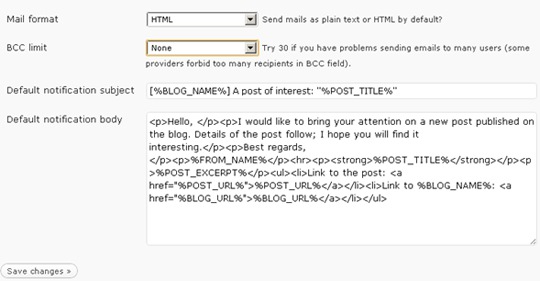
2. Peter’s Collaboration E-mails
This plugin updates both the blog owner and the contributor on the submitted guest post status:
- When a Contributor user submits an article for review: The plugin e-mails a list of approvers of your choice, letting them know that there is a post ready for review, and giving them a link to edit the post.
- When a post is approved: The Contributor user gets an e-mail saying that their post has been approved and who it was approved by. If the post was directly published, the author is given a link to read the post as the whole world sees it. If the post is scheduled to be published, the author is informed of the time that their post will go live. When the post does go live, the author will get another e-mail informing him / her of that.
- When a post’s status is changed back to “draft” from “pending”: The original Contributor user gets an e-mail saying that their post has been reverted back to a draft, along with a link to edit and re-submit the post.
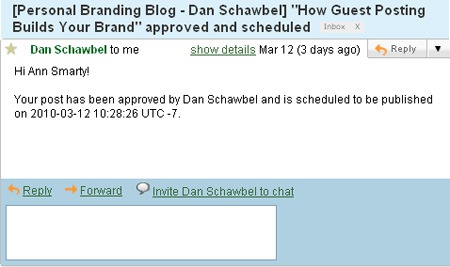
3. Peter’s Post Notes for WordPress
Peter’s Post Notes for WordPress: this plugin allows to post quick private notes to go with posts. It is thus a very handy collaboration tool as an editor can suggest a quick fix, the contributor can report a status or ask for the advice etc – and the whole conversation is forever saved with the post for you to refer to it whenever you need to. Besides, when used in combination with the above plugin, the note recipient will be updated of a new note via email.
The notes are added right to the extra panel added to the sidebar (once you save the draft or publish the post, the note is saved as well).
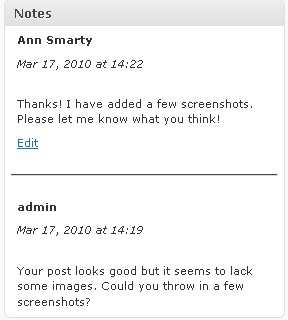
4. Admin Msg Board
Admin Msg Board is a plugin for WordPress that will add a messaging system in your WordPress admin area. Messages can have up to 140 characters (ala your own internal blog Twitter), and you can choose whether to send a message to all writers or select recipients
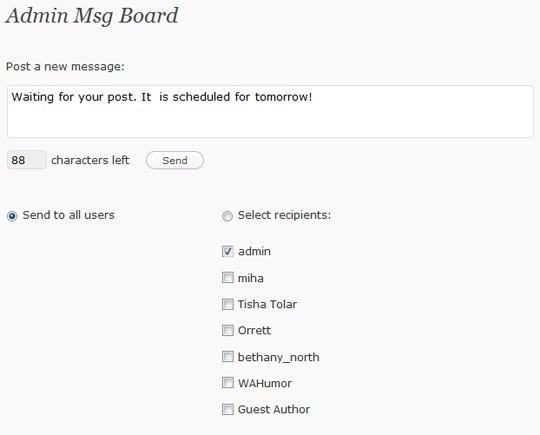
5. Private Messages For WordPress
This plugin allows users of WordPress blog send private messages (PM) to each other. The number of PMs can be controlled via the plugin option page.
Otherwise, an email will be sent to user when a new PM is received.
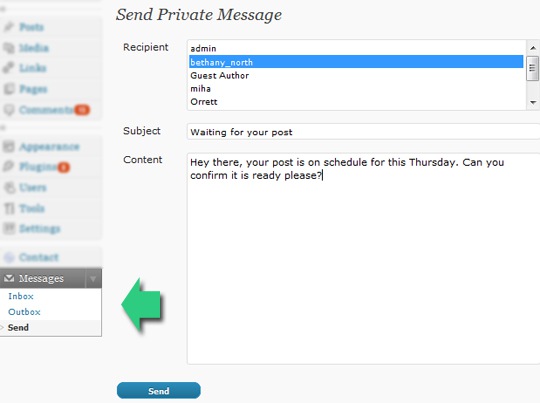
Do you run (or plan to launch) a multi-author blog? Please share your insight!




![AI Overviews: We Reverse-Engineered Them So You Don't Have To [+ What You Need To Do Next]](https://www.searchenginejournal.com/wp-content/uploads/2025/04/sidebar1x-455.png)